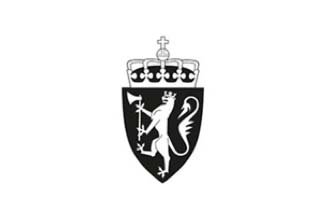










Icelandic Financial Supervisory Authority (FME)
Regulates financial institutions and securities in Iceland.
Tags:Forex RegulationBasic Information
The Icelandic Financial Supervisory Authority (FME), known locally as Fjármálaeftirlitið, was the primary regulatory body overseeing Iceland’s financial sector from its establishment in 1999 until its merger with the Central Bank of Iceland on 1 January 2020. The FME operated as an independent government agency headquartered in Reykjavík, employing approximately 75 staff at its peak. Its official website, fme.is, served as a central hub for regulatory publications, statistical reports, and compliance guidelines for financial institutions under its supervision.
Historical Background
The FME was created through the merger of two predecessor organizations: the Bank Inspectorate of the Central Bank of Iceland and the Insurance Supervisory Authority. This consolidation occurred under Act No. 87/1998 on the Official Supervision of Financial Operations and Act No. 99/1999 on the Payment of Cost Due to the Official Supervision of Financial Activities. The authority gained international attention during Iceland’s 2008-2012 financial crisis when it intervened to take control of major banks like Landsbanki, Glitnir, and Kaupthing to stabilize the financial system.
Legal Authority and Regulatory Framework
The FME derived its regulatory powers from multiple Icelandic laws including:
– Act No. 161/2002 governing commercial banks and securities firms
– Act No. 60/1994 regulating insurance activities
– Act No. 129/1997 covering pension funds
– Act No. 34/1998 for stock exchanges
The authority implemented EU financial directives through Iceland’s EEA membership, particularly in insurance mediation (Directive 2002/92) and financial services. It maintained powers to license financial institutions, conduct audits, impose administrative fines, and intervene in distressed financial entities.
Supervisory Scope and Responsibilities
The FME’s comprehensive oversight extended to:
1. Deposit-taking institutions: Commercial banks, savings banks, and credit institutions
2. Investment services: Securities firms, brokerages, and UCITS management companies
3. Insurance sector: Insurers, brokers, and special insurance funds
4. Pension system: Pension fund management
5. Special entities: Housing Financing Fund, Iceland Post postal giro, and venture capital funds
Key functions included monitoring financial stability, enforcing compliance, investigating misconduct, and protecting consumer interests through disclosure requirements and business conduct rules.
Official Contact Information
Prior to its 2020 merger, the FME maintained its headquarters at:
Höfðatún 2, 105 Reykjavík, Iceland
The authority could be reached through its general contact form on fme.is, with specific departments handling licensing inquiries, consumer complaints, and regulatory reporting. All official communications were conducted in Icelandic and English.
Regulatory Verification Process
To confirm an entity’s FME authorization status:
1. Visit the archived version of fme.is via web archives
2. Navigate to the financial registers section
3. Search by company name or license number
4. Verify current authorization dates and permitted activities
The FME maintained public registers of all licensed financial institutions, with updates published in its annual reports. Post-merger verification requests should be directed to the Central Bank of Iceland’s Financial Supervision Department.






